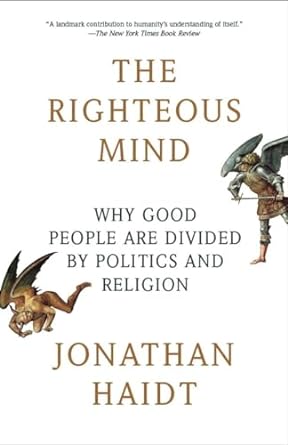“Reasoning-why,” in contrast, is the process “by which we describe how we think we reached a judgment, or how we think another person could reach that judgment.”34 “Reasoning-why” can occur only for creatures that have language and a need to explain themselves to other creatures. “Reasoning-why” is not automatic; it’s conscious, it sometimes feels like work, and it’s easily disrupted by cognitive load. Kohlberg had convinced moral psychologists to study “reasoning-why” and to neglect “seeing-that.”35
Welcome back. Just a moment while we sign you in to your Goodreads account.


